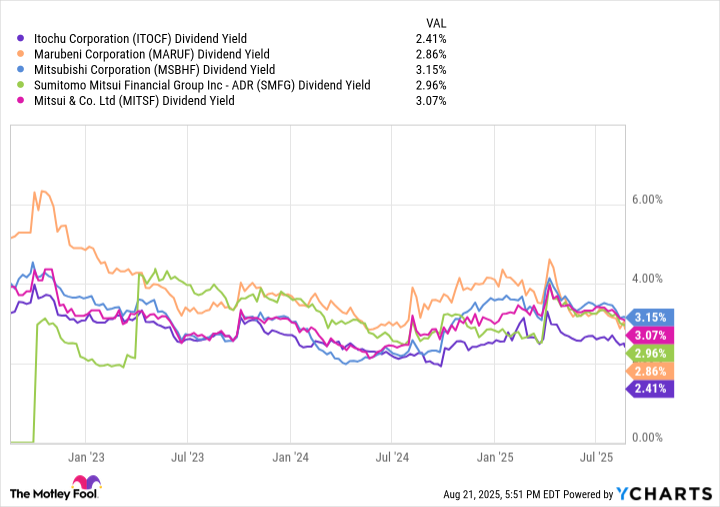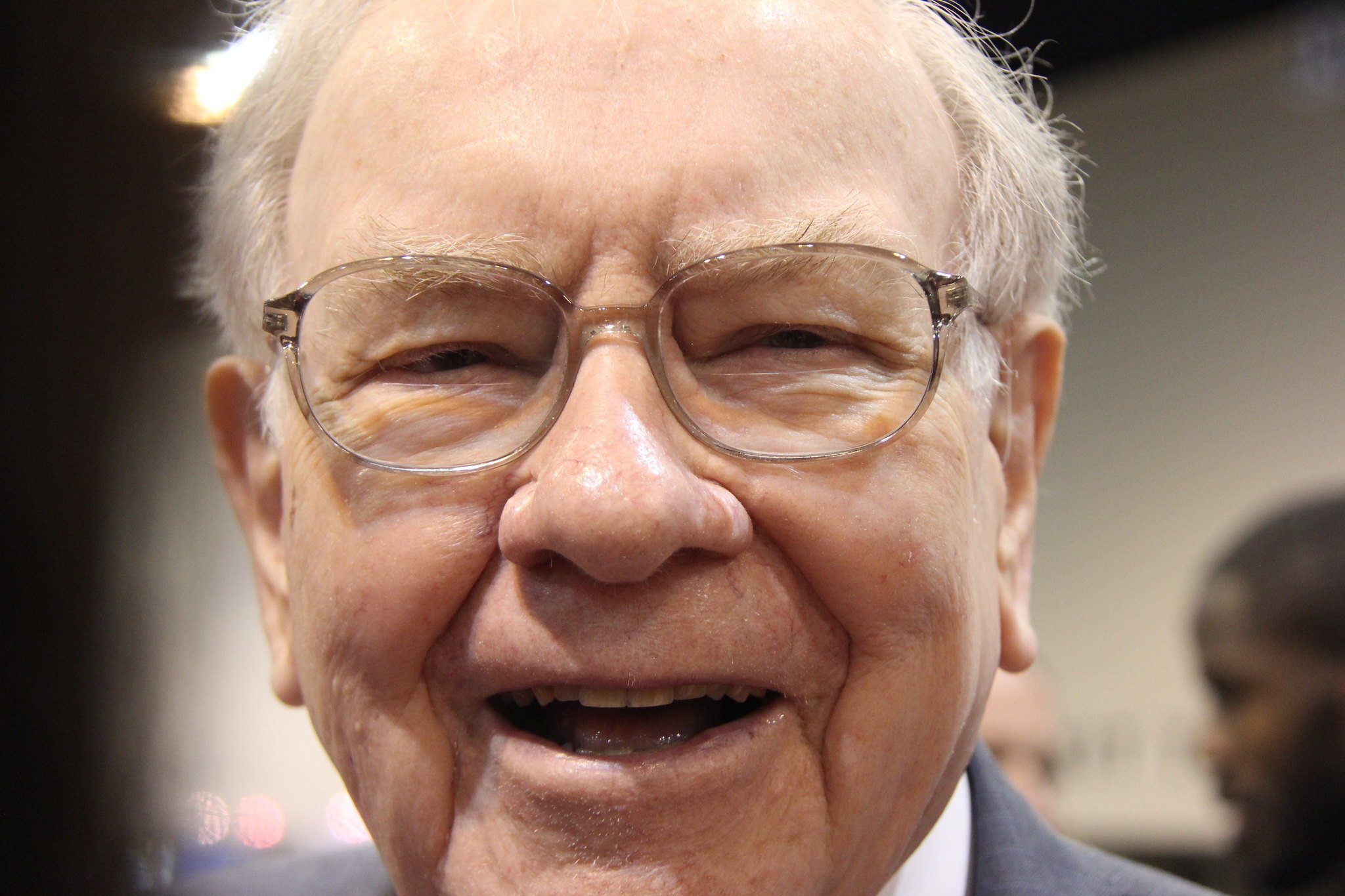It will be a long, long time before someone racks up the investing credentials of Warren Buffett. The Oracle of Omaha led Berkshire Hathaway (BRK.A +0.07%) (BRK.B +0.11%) for 60 years, and has said he plans to retire at the end of the year, a few months after celebrating his 95th birthday. Buffett's legendary career led Berkshire to amass a 19.9% compounded annual gain since 1965, compared to the S&P 500's 10.4% gain.
In that time Berkshire saw an overall gain of 5,550,000% versus the market's 39,000% gain. That's a huge return -- and it shows the absolute power of compounded returns.
Buffett's career is closely followed, and he's taken positions in some of the biggest and most well-known companies in the world -- Apple, Bank of America, Coca-Cola, ExxonMobil, and others. But he's also making some quiet, deliberate investments in some under-the-radar companies -- five of them in particular -- that could be great investment opportunities. Let's look at all five, plus a high-profile Buffett stock that I think you should avoid at all costs right now.

Image source: The Motley Fool.
Buffett's five hidden gems
In 2019, Buffett and Berkshire Hathaway took out positions in five Japanese-based trading houses: Itochu (ITOCF +2.04%), (ITOCF +2.04%), Marubeni (MARUY +0.96%) (MARUF +0.12%), Mitsubishi (MSBHF +1.39%), Mitsui (MITSF 1.02%) (MITSY +1.60%), and Sumitomo (SSUM.Y +1.39%) (SSUM.F +1.02%). The companies are diverse conglomerates that work in a variety of fields in Japan and China, including industrial metals, energy, real estate, financial services, healthcare, consumer, and automotive.

OTC: MSBHF
Key Data Points
Each of them have a lot in common with Berkshire Hathaway itself, which got its start as a textile company before Buffett turned it into the conglomerate we know today.
Buffett wrote at length about the Japanese sogo shosha in Berkshire's 2024 letter to investors, saying:
"We simply looked at their financial records and were amazed at the low prices of their stocks. As the years have passed, our admiration for these companies has consistently grown. (Incoming CEO) Greg (Abel) has met many times with them, and I regularly follow their progress. Both of us like their capital deployment, their managements and their attitude in respect to their investors. Each of the five companies increase dividends when appropriate, they repurchase their shares when it is sensible to do so, and their top managers are far less aggressive in their compensation programs than their U.S. counterparts."
Berkshire's holdings in these companies is small compared to the full Berkshire portfolio, which has a value of $1.05 trillion. Currently, the companies have a collective market value of $28.6 billion, or only 2.7% of Berkshire's holdings.
However, that is sure to increase, even after Buffett steps down and Abel takes the helm. Buffett disclosed in his shareholder letter that Berkshire had originally promised to keep his interests in each of the Japanese trading houses below 10%, but now that Berkshire is approaching the limit in each, the sogo shosha are relaxing the ceilings, so Berkshire will likely continue to increase its shares, he says.
Each of these companies have the valued Buffett stamp of approval, providing U.S. investors with an opportunity to diversify their portfolios into Asia while also collecting a consistent dividend.
ITOCF Dividend Yield data by YCharts
A Buffett stock to avoid
Not every stock can be a winner. And right now, Charter Communications (CHTR 0.36%) is taking it on the figurative chin. The stock is down 21% this year, with much of the drop coming last month after the company's disastrous second quarter earnings report.
In the report, Charter reported revenue of $13.7 billion, which was up only 0.6% from a year ago. But the market pulled back abruptly as the company's earnings of $9.18 per share fell far short of analysts' expectations for $9.58 per share.

NASDAQ: CHTR
Key Data Points
This really isn't a new problem -- Charter's is struggling to grow revenue, with sales expected to increase only 2% in the next two years. The company's biggest growth driver is its mobile service, which increased 24.9% on a year-over-year basis. But it brought in only $921 million in the quarter, which is only 6.6% of the company's quarterly revenue. Meanwhile, the company's cable service dropped 9.9% in revenue to $3.48 billion.
To add insult to injury for income investors, Charter doesn't even pay a dividend. Dividend stocks are a staple to Buffett's portfolio, but Charter doesn't do a good job of rewarding shareholders with a payout.
The bottom line
For investors, the lesson is simple: follow the principles, not the person. Buffett has always looked for undervalued businesses with strong fundamentals and management that believed in rewarding shareholders. The five Japanese trading houses fit the bill, and it's no wonder that Buffett is excited to add to his positions there. Charter isn't providing value right now -- and I am wondering how long it will take for Buffett to shed its $284 million position.



















